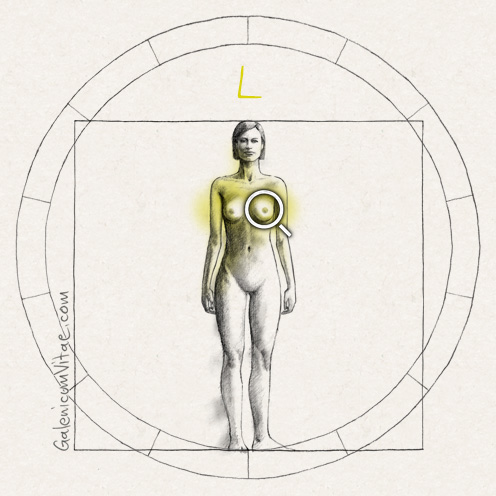Breast cancer is a malignant tumour in the breast tissue and is the most common cancer in women.
Risk factors include age, sex (the probability that a man will get breast cancer is one per every 100 women), family history, late menopause, stress, obesity, hormone replacement therapy (HRT) and lifestyle.
Prevention through self-examination, regular exams and mammograms help reduce the risk of breast cancer. Diagnosing it as soon as possible is critical.
It is recommended that all women starting at the age of 50 get a mammogram every two years.
The most commonly used treatments are surgery, radiotherapy, chemotherapy and hormone therapy.
Our body consists of a set of organs, which in turn are composed of cells that divide evenly in order to replace the already aging or dead cells; thus maintaining the integrity and proper functioning of the various organs. This process is regulated by a number of mechanisms that tell the cell when to start dividing and when to remain stable.
When these mechanisms are altered in a cell, it and its descendants initiate uncontrolled division, which over time will lead to a tumour or nodule. If these cells grow uncontrollably they also acquire the ability to invade surrounding tissues and organs (infiltration) and move into and proliferate in other parts of the body (metastasis), which is called malignant tumour - what we call cancer.
Breast cancer is a malignant tumour in the breast tissue and is the most common cancer in women.
Breast cancer is the most common cancer of women in the West. The incidence varies in different countries. The number of cases increases slowly each year, probably due to an aging population and an increasingly early diagnosis. It is estimated that the risk of developing breast cancer is about 1 in 8 women.
Risk factors include age (the risk increases gradually with age for women, with 70% of tumours being diagnosed between the age of 50 and 70), sex (the probability of a man getting breast cancer is 1 per 100 women), family history (odds of developing breast cancer increase if your mother, a sister or a daughter has had the disease, especially if she was diagnosed before the age of 50), late menopause, stress, obesity, substitutive hormonal therapy (HRT) and lifestyle.
Specific alterations in certain genes increase the risk of breast cancer. These alterations are rare; it is estimated that this does not even constitute 10% of all diagnosed breast tumours.
Prevention through regular gynaecological examinations, mammograms and self-examination help reduce the risk of breast cancer significantly. Systematic self-examination can enable women to detect lumps because this manoeuvre is repeated regularly and women become more familiar with their breasts at an early stage, although it is not recommended as the only method of early diagnosis. Self-examination cannot substitute mammography or other diagnostic techniques, since not all symptoms are perceptible to the eye or by touch. The average risk of breast cancer can be reduced by changing modifiable risk factors: a healthy lifestyle with regular exercise, balanced diet, avoiding alcohol and not smoking.
It is recommended that all women aged 50 and older have a mammogram every two years.
The most commonly used treatments are surgery, radiotherapy, chemotherapy and hormone therapy.
For example, hormone therapy with an aromatase inhibitor is administered to some postmenopausal women with hormone-dependent breast cancer. Hormone-dependent breast cancer needs the hormone oestrogen to grow. Aromatase inhibitors reduce oestrogen in the body because they prevent aromatase from turning androgen into oestrogen. Different treatments can be combined depending on the characteristics of the tumour.
Lots of experimental studies indicate that hormones (oestrogen and progesterone) play a very important role in the onset of breast cancer. Breast cancer is favoured by the hormonal influence of oestrogen in breast tissue.
For more information visit:
Breast Cancer
http://www.cancer.org/cancer/breastcancer/
Breast Cancer Care
http://www.breastcancercare.org.uk/
Breast cancer: prevention and control
http://www.who.int/cancer/detection/breastcancer/en
Breast Cancer
http://www.cancer.gov/types/breast

 Digestive
Digestive  Blood
Blood Cardiovascular
Cardiovascular Dermatology
Dermatology Genitourinary,
Genitourinary, Hormones
Hormones Infections
Infections Oncology and
Oncology and Musculo-skeletal
Musculo-skeletal Mental health and
Mental health and Parasites
Parasites Respiratory
Respiratory Senses
Senses Various
Various




